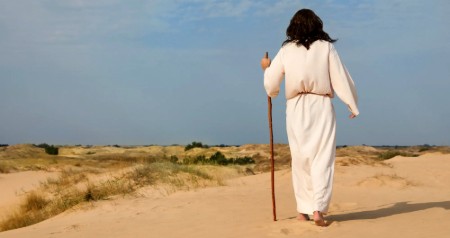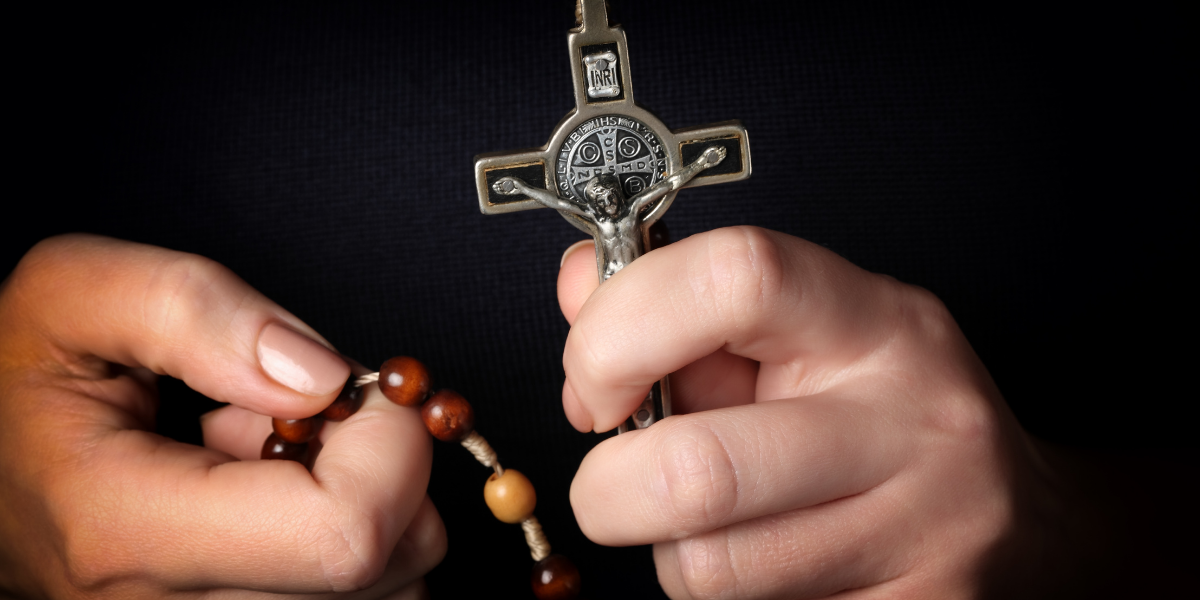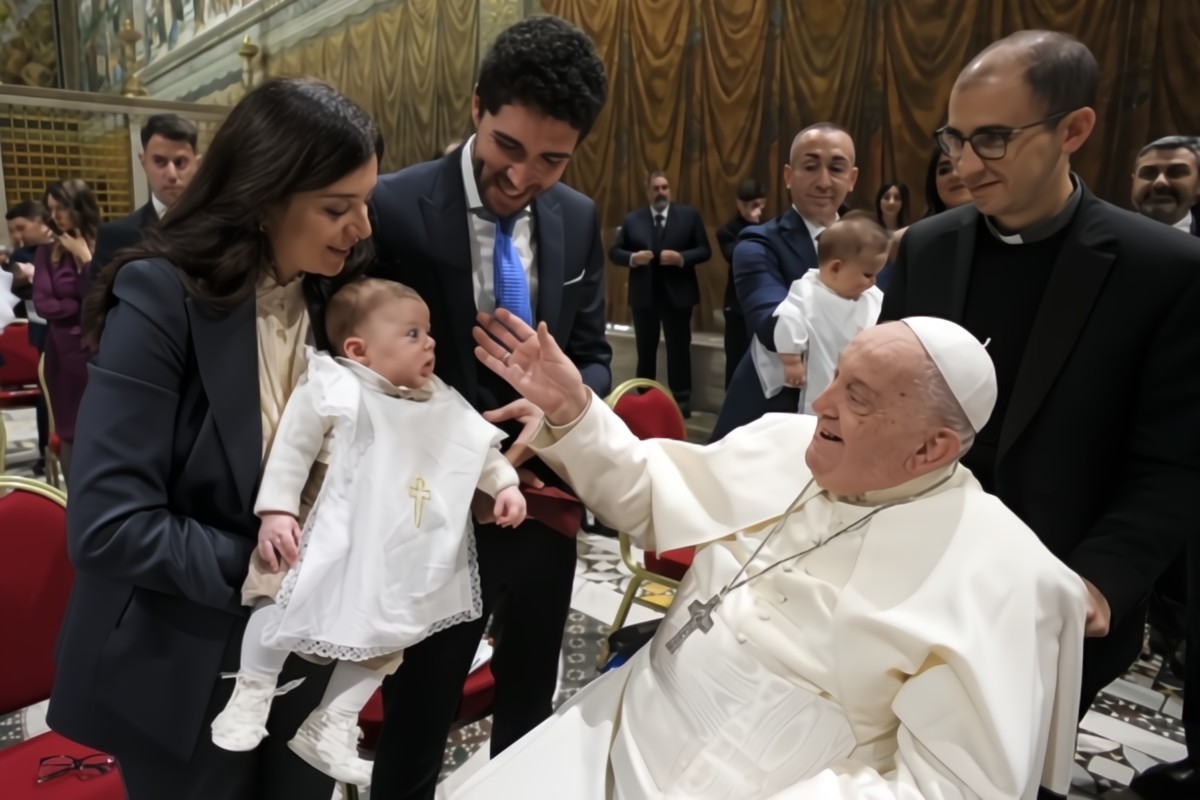We ask you, urgently: don’t scroll past this
Dear readers, Catholic Online was de-platformed by Shopify for our pro-life beliefs. They shut down our Catholic Online, Catholic Online School, Prayer Candles, and Catholic Online Learning Resources—essential faith tools serving over 1.4 million students and millions of families worldwide. Our founders, now in their 70's, just gave their entire life savings to protect this mission. But fewer than 2% of readers donate. If everyone gave just $5, the cost of a coffee, we could rebuild stronger and keep Catholic education free for all. Stand with us in faith. Thank you.Help Now >
A ´Different Benedict is Here´: Benedict XVI and the New Missionary Age
FREE Catholic Classes
The voices of those who wanted to place him in a terminological box have receded. This is a prophetic Pope with an inspired and historic mission that has only just begun.
Highlights
Catholic Online (https://www.catholic.org)
11/12/2009 (1 decade ago)
Published in Europe
CHESAPEAKE, Va. (Catholic Online) - History shows that the earliest days of a Papacy often send a signal for the watchful observer. We are told by some to pay attention to the name chosen by the new Pope and the content of their first messages. I vividly recall the first days of our current Pope´s service to the Church and the world. Joseph Cardinal Ratzinger chose the name Benedict. One of the young priests who commentated on this choice during the televised coverage of those extraordinary days noted that the new Pope had visited Subiaco before all the events even began. Subiaco is the home of the Benedictine monastic movement. It symbolizes the Christianization of Europe during the First Millennium.
Saint Benedict was born around the year 480 in Umbria, Italy. He is the father of Western Monasticism and co-patron of Europe (along with Saints Cyril and Methodius). As a young man, Benedict fled a decadent and declining Rome for further studies and deep prayer and reflection. He gave his life entirely to God as a son of the united Catholic Church. He traveled to Subiaco. That cave became his dwelling, the place where he communed deeply with God. It is now a shrine called "Sacro Speco" (The Holy Cave). It is still a sanctuary for pilgrims, including Pope Benedict XVI, who visited that very same place of prayer right before his election to the Chair of Peter.
St. Benedict lived a life of prayer and solitude for three years and studied under a monk named Romanus. His holiness drew other men and women and soon, twelve small monasteries were founded. He later traveled to Monte Cassino, where he completed his "Rule for Monks." From those Benedictine monasteries, an entire monastic movement, a lay movement in its day, was birthed and the world was changed through it. It was this movement which led to the evangelization of Europe and the emergence of an authentically Christian culture. This Culture was the fertile soil for the birth and flourishing of the academy, the arts and the emergence of what later became known as Christendom.
In April of 2005, Joseph Cardinal Ratzinger, a man of letters, professor and ardent student of Church history assumed the Chair of Peter as Pope Benedict XVI. Shortly after this momentous event, I wrote a lengthier article on the possible implications of his election containing a quotation from the philosopher Alisdair MacIntyre, taken from his book "After Virtue":
"It is always dangerous to draw too precise parallels between one historical period and another; and among the most misleading of such parallels are those which have been drawn between our own age in Europe and North America and the Epoch in which the Roman Empire declined into the Dark Ages. Nonetheless, certain parallels there are. A crucial turning point in that earlier history occurred when men and women of good will turned aside from the task of shoring up the Roman Imperium and ceased to identify the continuation of civility and moral community with the maintenance of the Imperium.
"What they set themselves to achieve instead- often not recognizing fully what they were doing- was the construction of new forms of community within which the moral life could be sustained so that both morality and civility might survive the coming ages of barbarism and darkness. If my account of our moral condition is correct, we ought also to conclude that for some time now we too have reached that turning point. What matters at this stage is the construction of local forms of community within which civility and the intellectual and moral life can be sustained through the new dark ages which are already upon us.
"And if the tradition of the virtues was able to survive the horrors of the last dark ages, we are not entirely without grounds for hope. This time however, the barbarians are not waiting beyond the frontiers; they have already been governing us for quite some time. And it is our lack of consciousness of this that constitutes part of our predicament.We are waiting not for a Godot, but for another-doubtless very different- St. Benedict."
I speculated that Pope Benedict XVI - who has since reminded us that the Church is a "creative minority" - was a response to the need expressed by MacIntyre for a "different Benedict". I am even more convinced of it now. In an age which has witnessed a decline in Christianity on the European continent, Pope Benedict XVI boldly calls for a rebirth of Christianity in Europe. In an age which has been beset by disunity in the ranks of those who bear the name Christian, he has undertaken an extraordinary mission of Church Unity. His prophetic and pastoral response to Anglicans seeking full communion in the safe harbor of the Catholic Church is one among several courageous and prophetic actions taken by this quiet, diminutive, and humble "servant of the servants of God".
Others include his offer of reconciliation with the followers of Archbishop Lefebvre; his encouragement of the lay movements and ecclesial communities, the "monastic movement" of this Third Millennium; and his extended hand of communion toward the Orthodox Church which has as its goal the full restoration of ecclesial and Eucharistic communion which recognizes legitimate diversity within such a renewed communion. This is a prophetic Pope who understands that there is no "Plan B", the Church is the only hope for the recovery of a devastated West. Indeed she is the only hope for the whole world because she continues the redemptive mission of her head, Jesus Christ. She is His Body.
He will soon visit Europe in a series of near non-stop apostolic visitations during his short tenure in office. St. Augustine of Canterbury was sent to what became England by another great Pope St. Gregory, in 669, to bring freedom to the inhabitants of that beautiful land through the proclamation of the full Gospel of Jesus Christ as found within the Catholic Church. Now, in the Third Millennium, the successor of Gregory is making the trip himself. The timing of the release of Anglicanorum Coetibus , the Apostolic constitution establishing Personal Ordinariates for returning groups of Anglican Christians, is no accident. Nor is it the only historic overture toward authentic unity which this Pope of Unity will offer during his service. The voices of those who wanted to place him in a terminological box have receded. This is a prophetic Pope with an inspired and historic mission that has only just begun.
Pope Benedict XVI participated in the Second Vatican Council. He not only understands the authentic teaching of that Council but has led the way in its proper implementation in many areas of life, both within the Church and in her mission to the contemporary age. He also understands the way that the Council was hijacked in some circles, disregarded in others and misinterpreted in still others. However, his is a voice calling for a dynamically orthodox and faithful Catholic Christian faith, practice, worship and life that does not want to move us back but forward and toward. In his homily prior to the convening of the conclave where he was chosen to fill the Chair of Peter, then Joseph Cardinal Ratzinger gave a prophetic insight into the challenges of the age:
"How many winds of doctrine we have known in recent decades, how many ideological currents, how many ways of thinking... The small boat of thought of many Christians has often been tossed about by these waves - thrown from one extreme to the other: from Marxism to liberalism, even to libertinism; from collectivism to radical individualism; from atheism to a vague religious mysticism; from agnosticism to syncretism, and so forth. Every day new sects are created and what Saint Paul says about human trickery comes true, with cunning which tries to draw those into error (cf Eph 4, 14). Having a clear faith, based on the Creed of the Church, is often labeled today as a fundamentalism. Whereas, relativism, which is letting oneself be tossed and "swept along by every wind of teaching," looks like the only attitude (acceptable) to today´s standards. We are moving towards a dictatorship of relativism which does not recognize anything as for certain and which has as its highest goal one´s own ego and one´s own desires."
Some attempted to misuse this prophetic insight to paint him as rejecting the modern world and somehow seeking to "turn the clock back". That was nonsense. What he rejects is the emptiness of what is called "modernity" and "post modernity". What he proposes is a path to authentic progress; a road leading not to the past, but to a future of hope. Authentic liberation can only be brought about through a new missionary age and a Rebirth of the Church. The Gospel - as taught by and lived in its fullness within the One, Holy, Catholic and Apostolic Church - is the only saving truth that redeems and brings about human flourishing, true freedom and authentic cultural recovery.
To proclaim this Gospel in its fullness to this Third Christian Millennium requires that the Church breathe with both of her lungs, East and West. That is why Benedict is unqualifiedly dedicated to such a full communion of the Church, East and West. He calls it his "impelling duty". He is the "Pope of Christian Unity" and he is the Pope of a new Missionary Age. He knows that the "two lungs" on the One Body of Christ must breathe together again in order to animate this new missionary age with the full breath of the Holy Spirit which is needed to renew the Church and reform the world again in Christ. Pope Benedict, like his namesake St. Benedict, has a vision for the Evangelization of Europe and the West. A "different Benedict" is here and a new missionary age has begun.
---
'Help Give every Student and Teacher FREE resources for a world-class Moral Catholic Education'
Copyright 2021 - Distributed by Catholic Online
Join the Movement
When you sign up below, you don't just join an email list - you're joining an entire movement for Free world class Catholic education.

-

-
Mysteries of the Rosary
-
St. Faustina Kowalska
-
Litany of the Blessed Virgin Mary
-
Saint of the Day for Wednesday, Oct 4th, 2023
-
Popular Saints
-
St. Francis of Assisi
-
Bible
-
Female / Women Saints
-
7 Morning Prayers you need to get your day started with God
-
Litany of the Blessed Virgin Mary
Introducing 'Journey with the Messiah' - A Revolutionary Way to Experience the Bible
-

9 Harmful Practices to Avoid When Confronting the Devil
-

Pope Francis Celebrates the Feast of the Baptism of the Lord with Special Emphasis on the Gift of Faith
-
New Respiratory Virus Spreads Across China: Is it a Threat to the Global Community?
-
Resurgent Nuclear Threats and the Call for Peace
Daily Catholic
 Daily Readings for Tuesday, January 14, 2025
Daily Readings for Tuesday, January 14, 2025 St. Felix of Nola: Saint of the Day for Tuesday, January 14, 2025
St. Felix of Nola: Saint of the Day for Tuesday, January 14, 2025 Prayer for a Blessing on the New Year: Prayer of the Day for Tuesday, December 31, 2024
Prayer for a Blessing on the New Year: Prayer of the Day for Tuesday, December 31, 2024- Daily Readings for Monday, January 13, 2025
- St. Hilary of Poitiers: Saint of the Day for Monday, January 13, 2025
- St. Theresa of the Child Jesus: Prayer of the Day for Monday, December 30, 2024
![]()
Copyright 2024 Catholic Online. All materials contained on this site, whether written, audible or visual are the exclusive property of Catholic Online and are protected under U.S. and International copyright laws, © Copyright 2024 Catholic Online. Any unauthorized use, without prior written consent of Catholic Online is strictly forbidden and prohibited.
Catholic Online is a Project of Your Catholic Voice Foundation, a Not-for-Profit Corporation. Your Catholic Voice Foundation has been granted a recognition of tax exemption under Section 501(c)(3) of the Internal Revenue Code. Federal Tax Identification Number: 81-0596847. Your gift is tax-deductible as allowed by law.








 Daily Readings for Tuesday, January 14, 2025
Daily Readings for Tuesday, January 14, 2025 St. Felix of Nola: Saint of the Day for Tuesday, January 14, 2025
St. Felix of Nola: Saint of the Day for Tuesday, January 14, 2025 Prayer for a Blessing on the New Year: Prayer of the Day for Tuesday, December 31, 2024
Prayer for a Blessing on the New Year: Prayer of the Day for Tuesday, December 31, 2024


